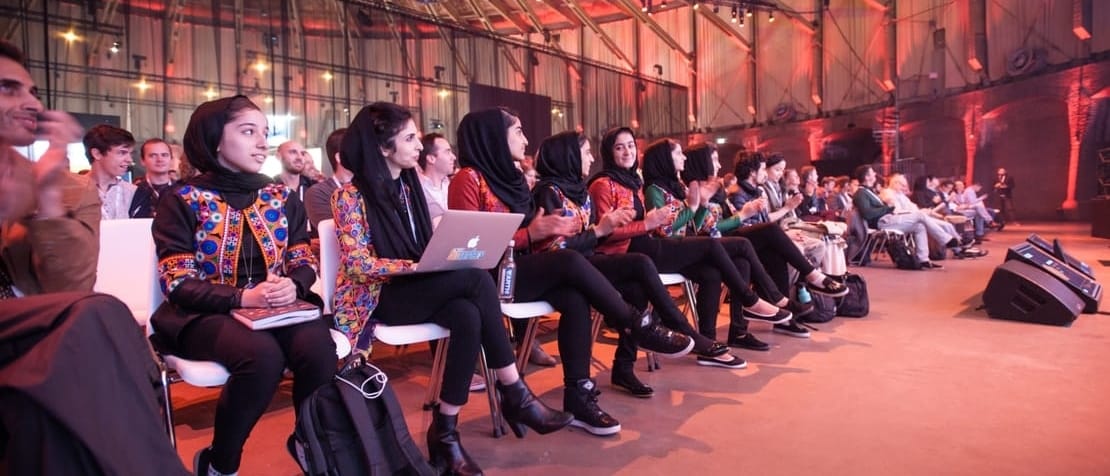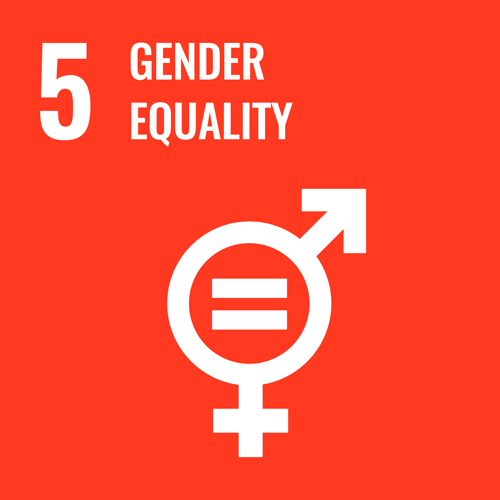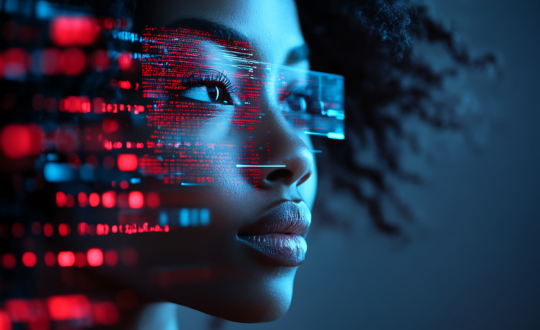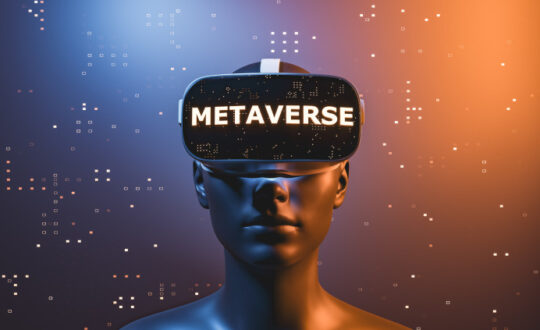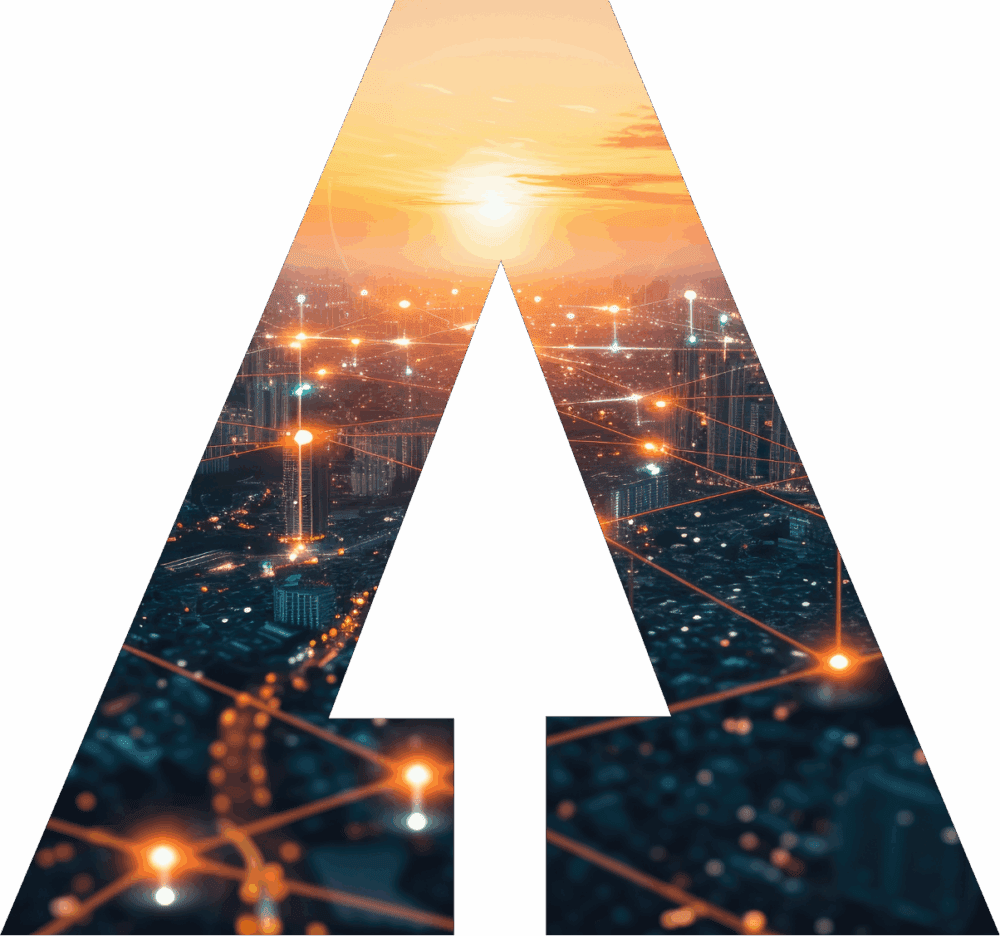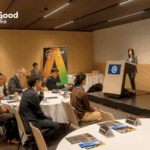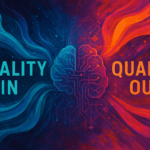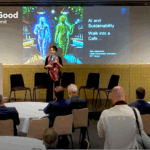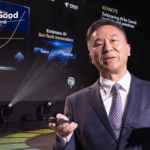For International Girls in ICT Day, and a few weeks ahead of the AI for Good Global Summit, ITU News caught up with Sarah Porter, CEO and Founder of InspiredMinds, World Summit AI, Intelligent Health, and Ada-AI, a non-profit dedicated to ensuring AI benefits all. Sarah is a humanitarian first-response trauma medic, ambassador for the Royal Marsden hospital in London and speaker for the United Nations on Lethal Autonomous Weapons. (This interview has been edited for length).
1. What motivated you to create Ada-AI?
When I saw the story that a team of young girls from Afghanistan had against all odds made a robot but were then refused their visa [to attend an international robotics contest], it made me realise just how fortunate the Global North is with their right to free education in many disciplines including Science, Technology Engineering and Mathematics (STEM), unlimited access to wifi, and opportunities to learn how to code.
The rapid progression of Artificial Intelligence (AI) by the wealthy corporations risks excluding the sectors of society that need it the most. Not only are women a minority in STEM education and in the tech teams building AI, the Global South is under-represented.
The Afghan team struck a chord with me as a classic manifestation of this bias and exclusion, which is why as a team we created Ada-AI.
The InspiredMinds and Ada-AI team then spent 6 months lobbying and raising funds, discussing safe passage for the girls from Kabul to get their visa in the midst of a war zone. It was a tough six months of pulling every string we could to get visa approval, flights, accommodation and safe transit of the girls.
The Ada-AI board have now voted to continue with the effort to promote diverse representation in the development of AI. Be it for humanitarian outreach, medical advantages or otherwise, the aim of Ada-AI is to work on projects that reduce inequitable AI.
2. What risks does this initiative aim to address?
Currently, the cohort of those developing AI are not representative of all. Racial and gender biases are already evident in some AI, and the proportion of women entering in STEM education remains low at less than 20% worldwide.
Our initiative includes a global learning programme to educate under-represented countries and sectors of society in STEM education. For example, we are building the first STEM school in Afghanistan called the SaRoya Institute.
Our aim is to create equitable and safe AI that is developed by every person alive today — of every minority, every race, and every gender — as opposed to just a privileged and affluent few.
3. What AI risks are you most worried about, and which AI opportunities make you most hopeful?
The greatest risk in AI is if it is developed as highlighted above — without the wide inclusion and representation of everyone.
Lethal autonomous weapons are also a danger. AI used for military purposes raises questions and the urgency of including meaningful human control. These lines need to be drawn now before lethal weapons of mass destruction are developed without consideration for humanity.
“AI will be what we allow it to be.”
I am most hopeful about the advances AI is making in medicine. We are currently working on an AI for cancer challenge using 200 clinicians worldwide combined with the leading AI technologists. Medical breakthroughs using AI will become exponential, and I believe will they lead to the eradication of diseases that we as humans have been laboriously researching for eons.
4. How can global stakeholders strive to ensure that AI and new technologies are used only for good?
As with all things in life, there will always be those that want to use tech for unethical or destructive purposes.
RELATED: Why ‘AI for Good’ is gaining ground
AI will be what we allow it to be. Unifying the goals of different actors across the world is difficult, but humans currently have control over how AI is developed. Collaboration, and open and transparent discussion are imperative. Global initiatives and forums such as World Summit AI are tackling this very question.
5. How did you get to where you are today? Did you have to overcome any particular challenges to get there?
I have always worked in technology and science. I have also worked in humanitarian aid and as a trauma medic for first response in challenging circumstances. I therefore fully appreciate that AI can positively contribute to humanity’s greatest challenges.
I have also experienced discrimination for being a female in technology, a female in science and a female founder and entrepreneur. The power structures within organisations whether academic or corporations are skewed to the white male and I have been told on numerous occasions that my chances for success are hindered due to gender.
This is something that InspiredMinds is tackling head on. Every girl and woman regardless of race or gender has the right to be educated, to be accepted as a person of value and credibility. Success comes in all shapes, colours and flavours and that’s the egalitarian society InspiredMinds are striving for. We would like to see an equitable structure that empowers all.
6. As a female tech leader and entrepreneur, do you have any advice for women and girls on Girls in ICT Day?
As a woman or girl I would say follow your dreams with gusto and don’t allow yourself to be swayed towards other people’s expectations of what you should be. Science and technology is wonderful magic, and some of the greatest pioneers have been female, from Ada Lovelace to Grace Hopper. The world needs more prolific women to pursue careers in STEM.


